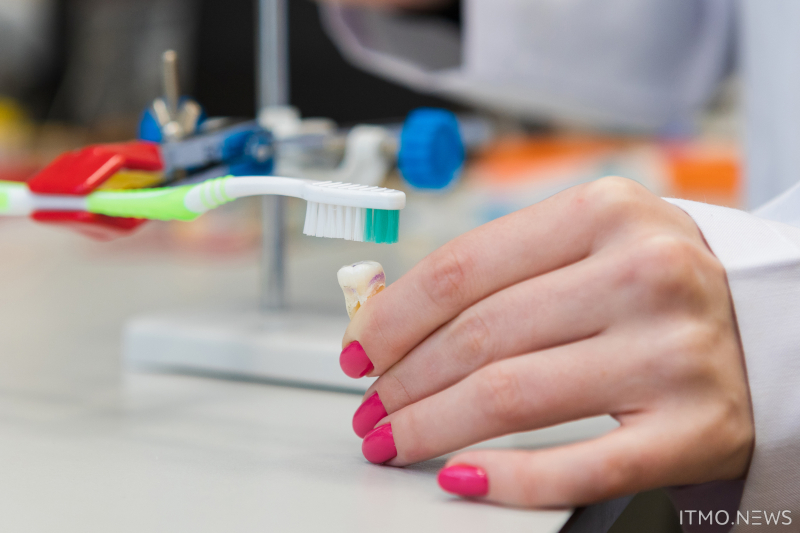
Farewell to Cavities: ITMO Scientists Develop Toothpaste to Beat Plaque More Efficiently
Researchers from ITMO’s ChemBio Cluster have developed a mechano-bactericidal toothpaste based on calcium carbonate. Tests have demonstrated that it is two times more efficient than conventional antiseptic toothpastes in removing the bacterial dental plaque that is often at the root of many oral diseases, including cavities.22.07.2022
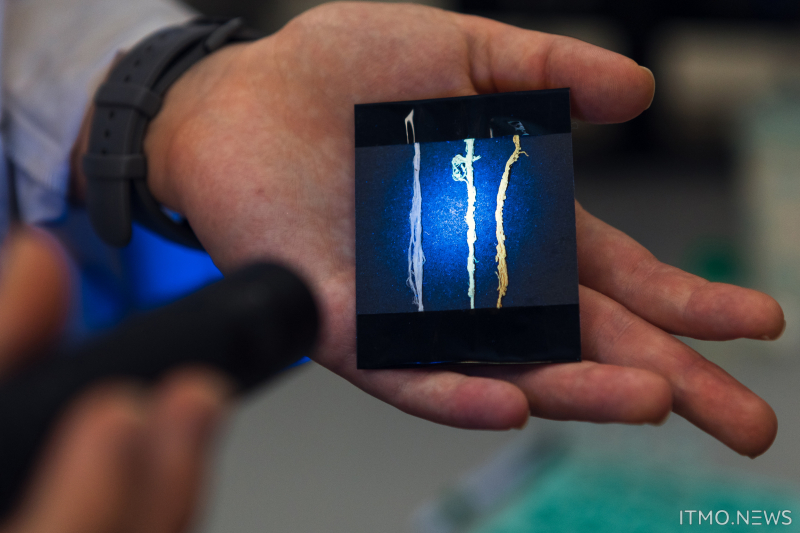
ITMO Scientists Develop Novel Hybrid Material to Prevent Post-Surgical Infection
Even though medicine has made huge strides in recent years, around 10-20% of all patients still fall victim to infection-related postoperative complications caused by sterilization issues or overly resistant bacteria in hospitals. Since infection sites are typically hard to detect, researchers from ITMO’s SCAMT Institute have created a new suture material that will make it possible to track the spread of infection in real time.14.07.2022
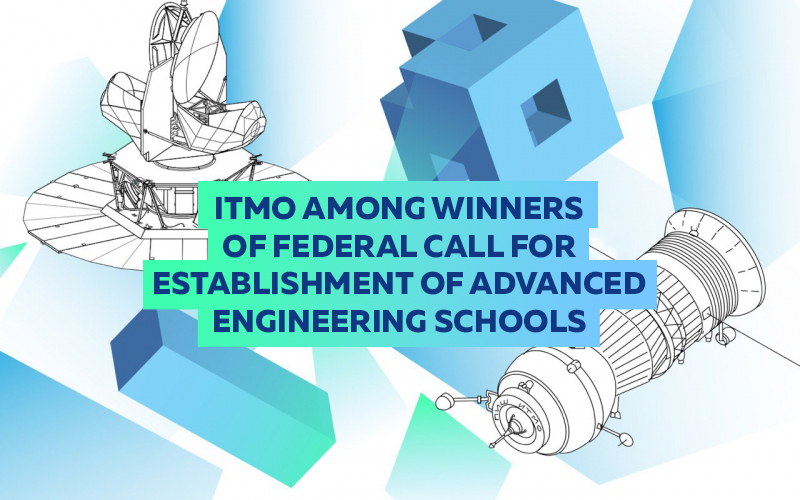
Creation of Advanced Engineering School at ITMO Approved by Russian Government
ITMO University has been named a winner of the federal call for establishment of advanced engineering schools (AES). Results of the selection were announced by Prime Minister Mikhail Mishustin during a session of the Russian Government.04.07.2022

How Optional Courses Can Instill a Love Of Science
Starting this year, students at ITMO have the chance to try their hand at teaching by developing their own optional courses. One of the contest’s participants is Maria Akhmetova, a second-year Master’s student at ITMO’s ChemBio Cluster, who has authored an advanced course in biochemistry with a focus on physical chemistry and research methods. ITMO.NEWS talked to Maria to learn more about challenges she had to face along the way and ways to engage students in the classroom.30.05.2022
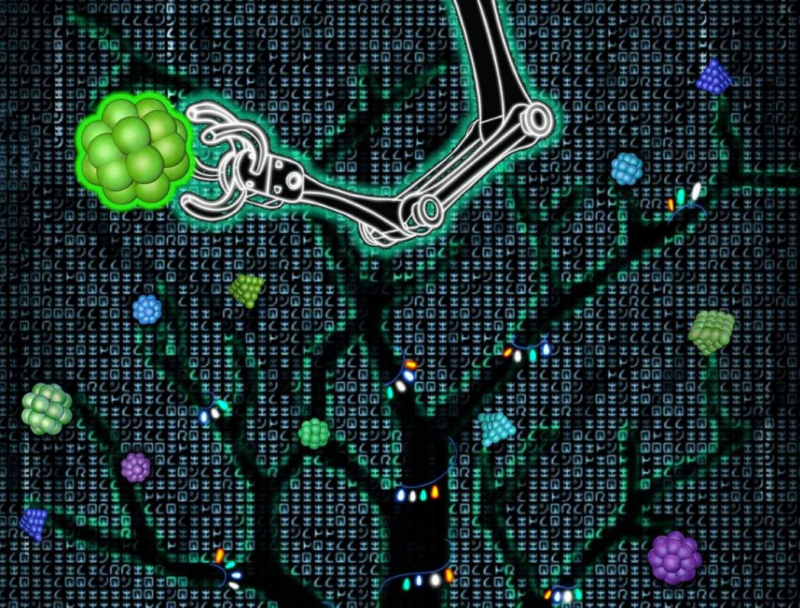
ITMO Researchers Develop First-Ever Online Platform For Nanozyme Modeling
Nanozymes are artificial enzymes made up of various nanoparticles. In contrast to natural enzymes, nanozymes demonstrate all the same properties while being easier to produce and work with. However, the hardest step in developing nanozyme-based drugs and diagnostic systems is modeling the necessary properties of their particles before synthesis. Researchers from ITMO’s SCAMT Institute have solved this task by developing DiZyme, the first platform in the world that predicts the catalytic activity of nanozymes.09.05.2022
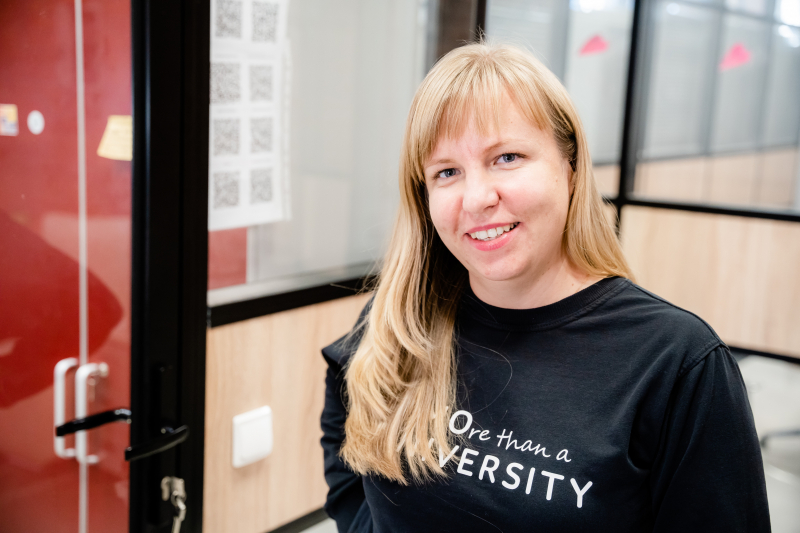
ITMO’s Female Scientists on Their Research Projects
In 2015, the UN General Assembly declared February 11 the International Day of Women and Girls in Science. This way, the global community strives to provide them with full and equal access to science and highlights the fact that women play an important role in science and technology. In today’s ITMO.NEWS article, we’ll talk about five research projects by female scientists from ITMO University.09.05.2022
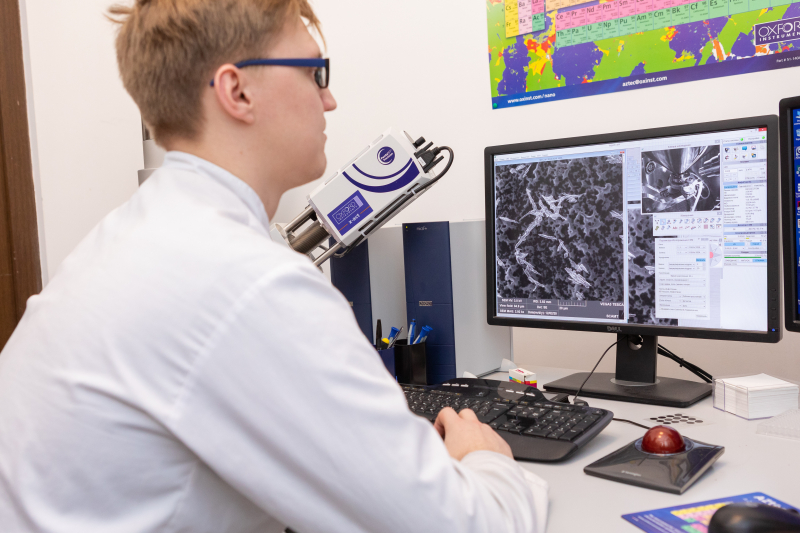
Chemistry and Artificial Intelligence Master’s Program: Opportunities, Scholarships, and Admissions Requirements
This year, ITMO University will welcome the first students of the new Master’s program in chemistry and artificial intelligence. Within two years, students will learn how to deal with unconventional tasks in chemistry, materials science, and biology using the advances of data science and AI. What other opportunities to expect? And how will the training be organized? Keep reading to get more details09.05.2022
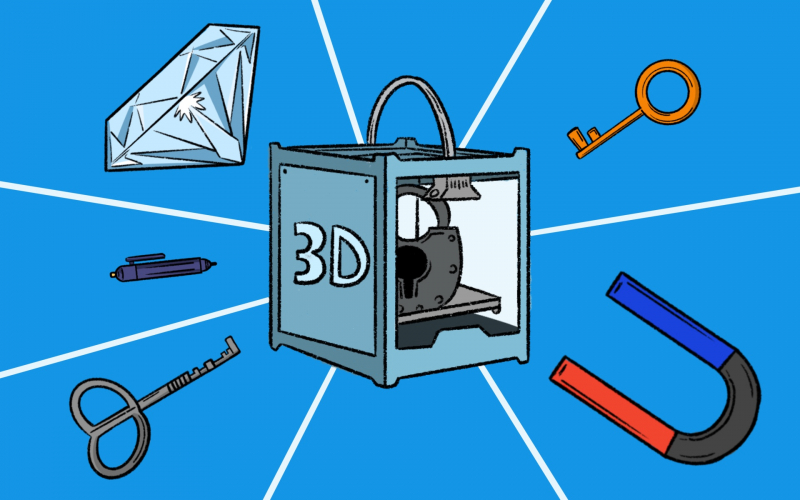
How 3D Printing and Chemistry Can Help Fight Forgery
The number of counterfeit goods on the global market continues to grow and the ongoing pandemic has only made the situation worse. As estimated by Euromonitor International, the global economy has lost as much as $2.2 trillion from sales of fake products in 2020. What does the world do to overcome the crisis? Can science save the day? The answer is, in fact, yes. ITMO scientists have recently proposed a highly promising anti-counterfeiting technology – a special gel ink based on 3D printing. In this article, Egor Ryabchenko, a Master’s student at ITMO’s ChemBio Cluster, answers the most frequently asked questions about this novel method and others.09.05.2022

ITMO Scientists Develop Method to Easily Synthesize Materials With Set Properties
Researchers from ITMO’s SCAMT Institute have demonstrated the possibility of using the sol-gel method to produce various porous monolithic structures from magnetite nanoparticles. The new method can produce multifunctional materials with complex hierarchical structures, such as the xero-, cryo-, and aerogel of magnetite. Thanks to this approach, it is possible to control the composition of the resulting porous materials through the relation of their compounds’ concentrations. One of the method’s most promising applications is biomedicine – the new aerogel can be used to stop bleeding and xerogel can serve as a repository for drug transportation.09.05.2022
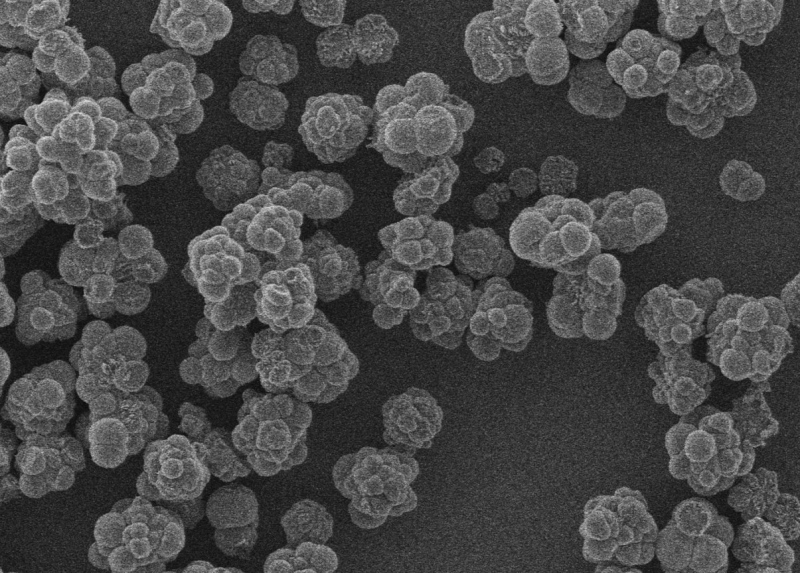
Finding Nanoparticles: ITMO Scientists Propose New Method for Discovering Nanomaterials With Desired Properties
Researchers from ITMO’s ChemBio Cluster have devised an algorithm that can automatically detect the properties of nanoparticles, including their size, shape, and surface structure, based on their images and even sketches and find similar particles in its database. The novel system also works the other way around by informing users how to produce substances with the desired properties. Read on to learn how AI helps accomplish the challenges of materials science and what the scientists want to achieve with their research.09.05.2022
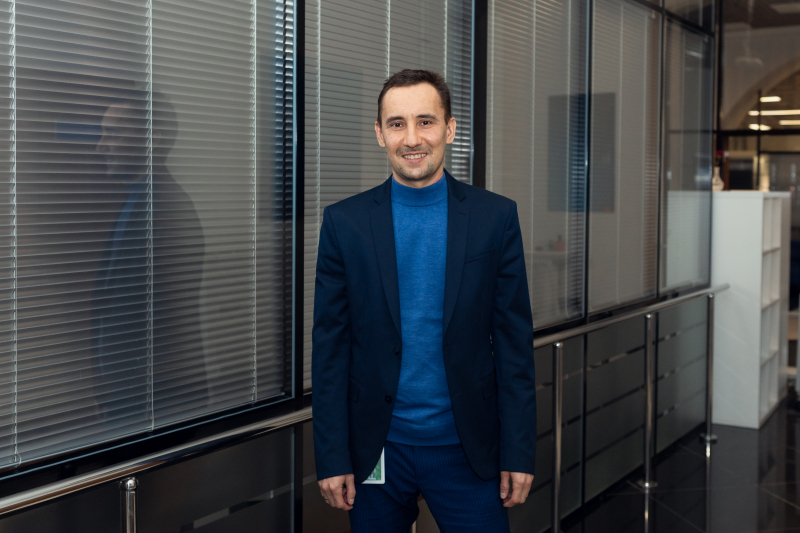
Geneticist Bayazit Yunusbayev On How Genetics Can Help Fight Autoimmune Diseases
For several years Bayazit Yunusbayev had been studying the mechanisms behind the autoimmune and allergic diseases at the University of Tartu (Estonia), and last year he joined ITMO’s SCAMT Institute , where he heads the Evolutionary Biomedicine group, to continue with his research. Bayazit Yunusbayev came to the university as part of the ITMO Fellowship and Professorship program that allows researchers to work at the university for several years. Read on to learn more about gene mutations responsible for immune system adaptation and discover other areas studied by the lab.09.05.2022
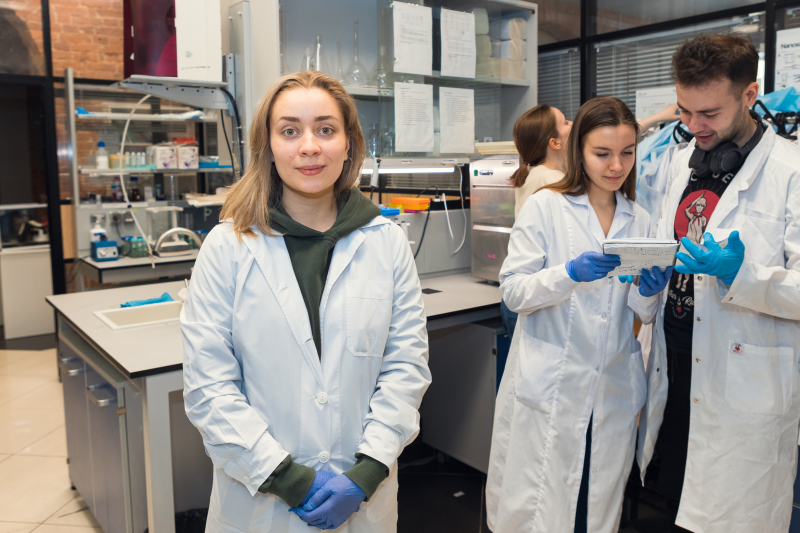
ITMO Researchers Developing Alternative to PCR Testing
A joint research team from ITMO University and the University of Central Florida are working on a new type of nanosensors – the so-called DNA nanomachines (nanorobots) – that can unfold RNA and DNA structures to identify pathogen-specific sequences. Unlike PCR tests, the new testing method does not require expensive equipment and special conditions and can thus be performed outside laboratories. Here is what you need to know about the novel diagnostics method.09.05.2022

ITMO Students Will Be Able to Defend their Theses as Scientific Papers
ITMO University is adding more options for thesis defense. In addition to the Startup as Thesis and Art Project as Thesis initiatives, students will soon be able to defend their thesis as a scientific article.09.05.2022
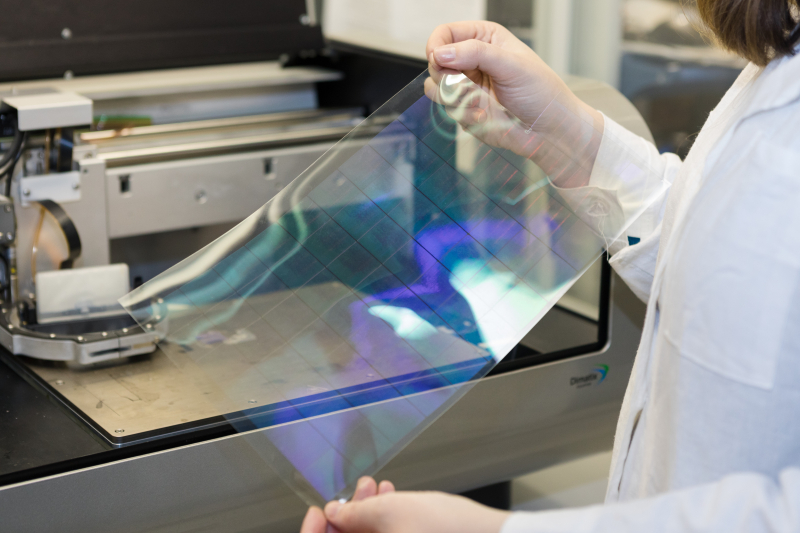
Fundamental Holography: ITMO Researchers Develop Method for Printing Holograms in Color
Scientists from ITMO’s ChemBio Cluster developed a method for printing holograms in color in a project supported by the Russian Science Foundation. At the core of the method are volume Bragg gratings, special films with reflecting properties. The proposed technology is extremely simple and doesn’t require any costly equipment. At the same time it has the potential to help produce full color holograms even on a regular printer. This project is a result of collaboration with Krypten, a scientific production organization specializing in optical protection for banknotes, documents, and trademarks.09.05.2022
